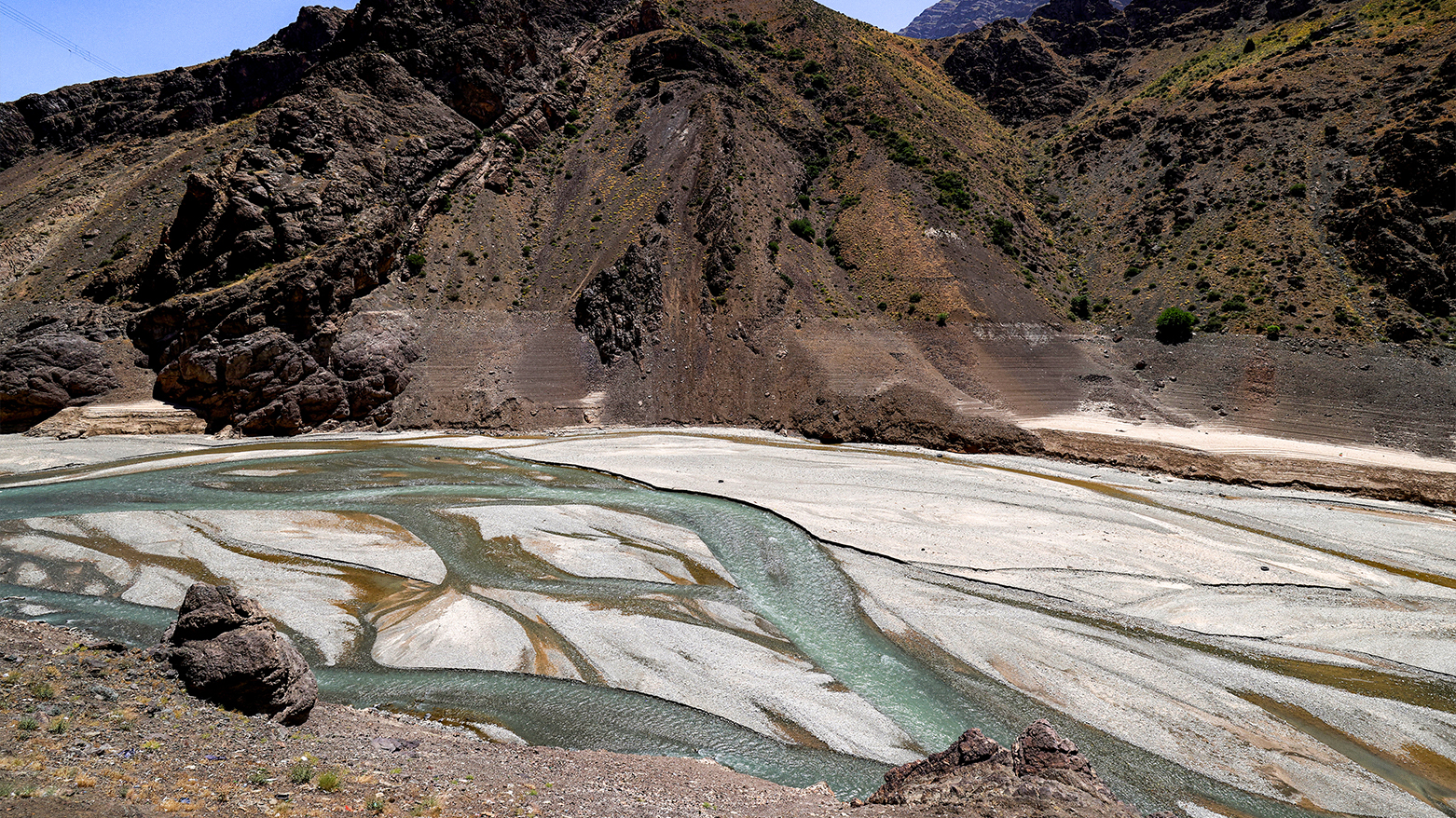Tehran Declares 'Heat Holiday' as Water Crisis Reaches Historic Levels
Tehran is in a historic water crisis, with dam levels down 87%. The government has declared a "heat holiday" to conserve resources as President Pezeshkian warns of a "dire" future and calls for urgent, fundamental solutions, including halting industrial water use.

ERBIL (Kurdistan 24) – Iran’s capital is grappling with an unprecedented water crisis of historic proportions, with officials announcing that the four main dams supplying Tehran have seen their water levels drop by a staggering 87%, prompting the government to declare a public holiday to conserve resources and the president to warn of a “dire and intractable situation” if immediate action is not taken.
The alarming state of the city’s water supply was detailed by Mohammad Sadegh Motamedian, the Governor of Tehran.
In statements to the Tasnim News Agency, he revealed that water consumption in the sprawling capital is five times greater than the available supply. He confirmed that the water level in the four main dams has plummeted by 87%, noting that only the Taleqan Dam remains in a relatively good condition. Consequently, the city is now critically dependent on wells and underground sources for 62% of its drinking water, a situation the governor attributed to a combination of overconsumption and rapid population growth.
The severity of the situation has been underscored by multiple state bodies.
The Water and Wastewater Company of Tehran Province had previously stated that after five years of persistent drought and low rainfall, Tehran has not experienced such a poor water situation in 100 years. In a separate announcement, the Iranian Water and Wastewater Department stated that the scarcity is unprecedented in the last 60 years and that water reserves in Tehran's dams have reached their lowest level, warning that the crisis will only worsen during the summer.
This escalating emergency has forced the government into taking drastic, short-term measures. On Sunday, Iran's government spokesperson Fatemeh Mohajerani announced that Wednesday, July 23, would be an official “heat holiday” in Tehran province specifically to reduce water and electricity consumption. She framed the holiday as an opportunity for people to rest or travel, particularly after the "difficult conditions of the 12-day war," while stressing that citizens must follow conservation guidelines.
At a press conference on Tuesday, Mohajerani indicated that the government may be forced to declare more holidays if necessary to control consumption, despite the economic harm they cause, Tasnim reported. "The government is not keen on having too many holidays, as an excess of holidays harms the government," she said. "However, if it is necessary to control energy and water consumption, we may announce more holidays."
Acknowledging public frustration, the spokesperson also responded to criticism about the lack of advance notice for water cuts, unlike the system in place for power outages. "This is a valid criticism, and I will follow up on it," Mohajerani stated. "People need to know at what time and for how long the water in their area or neighborhood will be cut."
The crisis has now drawn a direct and grave response from the highest level of government. Iran's President Masoud Pezeshkian, addressing the Council of Ministers in a meeting reported by Tasnim, delivered a stark assessment. "The water crisis is more serious than what is being discussed today, and if we do not think of a quick solution for it right now, we will face a dire and intractable situation in the future," he warned.
Pezeshkian dismissed stopgap measures, calling for a "fundamental solution" for Tehran that goes beyond simply transferring water from dams. He emphasized the need to review consumption methods and "set a limit on how water is used." In a significant policy proposal, the president said, "Industrial facilities operating in Tehran that consume large amounts of water should no longer be permitted to implement development projects."
He concluded by placing the issue in a broader context: "Our region as a whole is facing a severe crisis of water scarcity, and we must cooperate to confront it."
